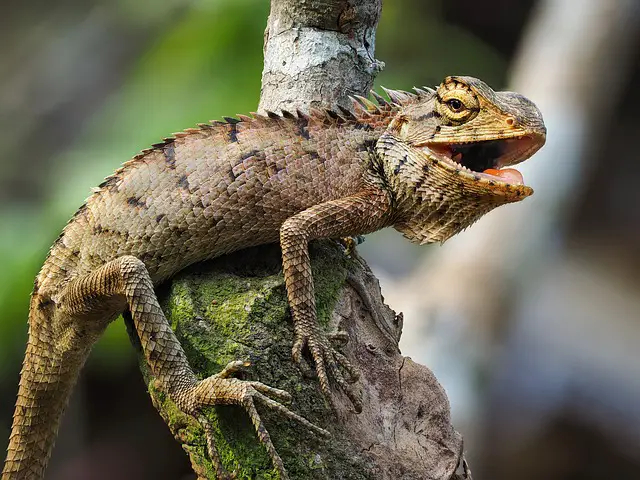If you’ve had your green iguana for a while, you might notice that its color has started to change. Instead of being that bright, vibrant green, it might be turning brown. While this might be concerning at first, there’s no need to panic. In this blog post, we’ll discuss some of the reasons why your green iguana might be turning brown and what you can do about it.
Why is my green iguana turning brown?
If your green iguana is turning brown, it could be due to a number of reasons.
- First, it could be a sign of stress. Iguanas are very sensitive to changes in their environment, and even something as small as a new piece of furniture can cause them to feel stressed.
- If your iguana is feeling stressed, it may stop eating, which can lead to weight loss and a change in color.
- Additionally, a change in temperature can also cause an iguana to turn brown.
- If the temperature drops too low, the iguana’s metabolism will slow down and it will start to conserve energy by turning brown.
- Finally, if your iguana isn’t getting enough UVB light, it may also start to turn brown. UVB light is essential for iguanas, as it helps them to produce vitamin D3. Without enough vitamin D3, the iguana’s bones will become weak and brittle.
If you’re concerned that your iguana isn’t getting enough vitamin D or calcium, the best thing to do is take it to the vet. They’ll be able to run some tests and determine whether or not your iguana is deficient in either of these nutrients. If so, they can recommend a course of treatment to get your iguana back to good health.
Conclusion
If you notice that your green iguana is starting to turn brown, don’t panic! There are a few reasons why this might be happening, and most of them are nothing to worry about. However, if you’re concerned that your iguana isn’t getting enough vitamin D or calcium, the best thing to do is take it to the vet for a checkup. They’ll be able to determine whether or not there’s a deficiency and recommend a course of treatment accordingly.





